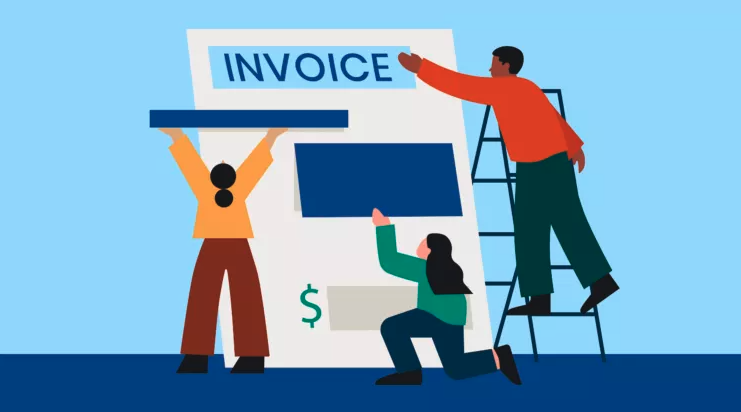The challenges of strategic planning for law firms and how you grow a law firm are well documented. Strategic options usually involve delivering more of the same services to different client demographics or different geographic regions. Diversification into other “established” areas of law is more challenging but usually achievable. Indeed, existing areas of law are continually evolving, and current knowledge needs to be updated constantly. You only need to look at the King’s Speech at the State Opening of Parliament to understand the scope of change to existing laws.
More law firms compete across “common” practice areas in a competitive legal marketplace. These include property law, personal law (wills, powers of attorney, probate, etc.), commercial law, civil and criminal litigation, and company, employment, and business law—this list is not exhaustive.
Emerging areas of law, however, tend to be explored little by lawyers, but they can reap massive rewards for those enterprising enough to make the leap. The potential rewards, such as professional growth, financial success, and the opportunity to shape the future of law, are indeed significant. Of course, they come with attendant risks, but the potential benefits make the journey worthwhile.

Many areas of practice we take for granted today started as emerging areas of law in demand in the UK. Twenty-five years ago, we would not have thought the developing body of Immigration Law would find its way into those common UK law areas. This underscores the importance of staying updated with developing areas of law, as it allows us to anticipate changes and make strategic decisions for our law firms.
At the same time, the practice of law is changing rapidly. Lawyers have become accustomed to working in remote or hybrid environments, and emerging technologies like ChatGPT are set to disrupt the legal industry. Thankfully, using cloud-based legal practice management software like Clio makes it easier than ever for lawyers to work more efficiently and automate routine tasks—no matter where they are.
Eager to learn more? Check out our free webinar: Watch How Law Firms Use Clio.
Cybersecurity and Privacy Law
Let’s start with the Data Protection Act of 1998, which gave birth to a legal sector that has exploded recently. Microsoft turned the PC into a business staple and consumer device. Apple’s iPhone redefined the mobile phone, while Facebook and Twitter connected people in ways never imagined in 1998!
The biggest issue is the need for legislation to keep pace with these developing technologies.
The General Data Protection Regulation (GDPR) and an updated UK Data Protection Act in 2018 beefed up personal data privacy protection protection. New legislation is proposed in the current parliament. The Data Protection and Digital Information Bill and the Cyber Security and Resilience Bill were introduced in the King’s Speech.
Cybersecurity law has become front and centre due to some significant data breaches in recent years. The worldwide WannaCry ransomware attack in May 2017 affected more than 60 NHS trusts in the UK. British Airways has suffered multiple data breaches, been fined £20m by the Information Commissioner’s Office (ICO), and was caught along with the BBC and Boots in a cyber-attack against their payroll provider in June 2023.
Law firms are not immune to these types of attacks. The Law Society reports that 65% of law firms in England and Wales have been victims of a cyber incident.
As activity in this area continues to grow, organisations and individuals will need the help of lawyers. They will need help with contract drafting, civil litigation, damages claims and criminal defence, to name but a few. This presents a significant opportunity for legal professionals to expand their practice and contribute to the development of these emerging areas of law.
Read more on how to keep your law firm data secure.

Technology and AI Law
Artificial Intelligence law has been booming since November 2022, when ChatGPT made its first public appearance. While AI has been around for a while, ChatGPT made it more immediately accessible to the masses, with everyone from marketers to lawyers signing up to use it. You only need to check out our AI updates for lawyers to see how quickly this emerging practice area of law is developing.
The problem with Large Language Models (LLMs) like ChatGPT is whilst they are extremely powerful, they can also make mistakes. They can produce misleading or false information, which many describe as hallucinating. If you are a lawyer and find using AI beneficial, you must also beware of its ability to hallucinate and any biases. This can prove extremely embarrassing, as can be seen in a case in New York where lawyers submitted a legal brief that included six fictitious case citations.
Many businesses have embedded AI in their websites as a chatbot to answer visitors’ queries. However, this can cause problems. Air Canada tried to argue that an AI chatbot they had installed on their website got it wrong and that it was a separate legal entity. That argument failed, and Air Canada was ordered to pay $812.02 in damages and tribunal fees to the complainant. A New Zealand supermarket chain embedded a meal planner AI chatbot on its website. It made some very extreme suggestions, including how to make a chlorine gas cocktail and “poison bread sandwiches”. Fortunately, nobody was injured.
There is a role to play for AI in the future just as much as there will be a role for lawyers to litigate AI mistakes. Lawyers will need to advise clients of the extent of their liability in their use of AI. This will cover their interactions with clients, customers, suppliers and third parties.
We also have the breach of copyright arguments and intellectual property infringements to contend with.
This is another emerging law practice area that offers scope for diversification, which could generate significant returns for lawyers and law firms. The rapid growth of technology and law presents exciting opportunities for those willing to explore this field.
Read more: Navigating AI Legal Issues: Overcoming Pitfalls in AI Adoption for Lawyers
A Lawyer’s Guide to Artificial Intelligence
Read our free guide on artificial intelligence for law firms. It’s a great way to learn what exactly AI is, how it relates to law and its practical applications in law firms.
Download Guide NowEnvironmental Law
The United Nations (UN) has declared a climate emergency, citing human behaviours as a significant contributor to global warming. Sustainability has become a key focus. Closer to home, water companies have received record fines due to failing to manage their wastewater treatment works. In the King’s Speech, we have a new Water (Special Measures) Bill to regulate water companies. This will force them to act and result in cleaner UK rivers, lakes and seas.
Climate activists have taken to the streets to demonstrate. Some have caused disruption to traffic and ended up in jail.
With the transition from oil and gas to green energy, environmental legislation governs any new applications for oil exploration licenses in the seas around Britain. Environmental factors must also be considered in almost all new onshore developments in the UK, ranging from housing to large infrastructure projects.
Lawyers need to be involved in interpreting the legal regulations surrounding this emerging sector of law and how it impacts businesses and consumers alike. Lawyers specialising in these law fields stand to make significant gains, from advising on contract formulation to challenging or defending planning applications to litigating environmental impacts.

Health Law
Global pandemics are rare, but the impact on the population is significant when they happen. The recent COVID-19 pandemic not only caused widespread death but also significant legacy illnesses. The mental health of many of the population suffered as a result of lockdowns and other restrictions. The UK Covid Inquiry has already published its first report and made ten recommendations.
Also, the government has recently published a Tobacco and Vapes Bill to improve the health of the nation’s youth in the UK. This Bill seeks to outlaw smoking for younger people and to create a “smoke-free” generation. The Bill proposes to make it illegal for anyone to sell tobacco products to anyone born after 1 January 2009. There are also provisions to outlaw selling non-nicotine vaping products to under 18s. In addition to this legislation, there is a drive to outlaw single-use vapes. Whilst essentially a health Bill, this legislation will significantly impact retailers. This will not only affect retailers’ profits, but they could potentially end up with a criminal record.
Claims against health professionals and health trusts are not new. However, the findings of the UK Covid Inquiry may well result in significant litigation. Fraudulent uses of the various financial schemes set up by the UK government as a result of the pandemic are also making their way to the surface. These will require recovery litigation and criminal representation for those charged with fraud.
There is also an issue of long-term ill health and employment. Although not a new concept, the residue of the pandemic and “long-covid” has impacted the ability of thousands of people to work. Employers and employees need advice in this area.
Finally, access to health care has caused a significant problem for millions of people. Waiting lists for hospital procedures have reached an all-time high, and health trusts are struggling to bring waiting times down. A key issue is the decline in the condition of those patients awaiting treatment, which may result in more complex health issues developing. The question then arises as to who is responsible, which will most likely involve litigation to resolve.
Another emerging area related to health law is law affecting older adults. In the US, this is called elder law. With an ageing population, legal issues around long-term care, estate planning, and elder abuse are becoming more prevalent. Elder law is likely to be an in-demand speciality in the coming years.
Crypto Assets and Space Law
Two rapidly emerging areas of law in the UK are Crypto Assets and Space Law.
Crypto Assets
Interest in crypto assets has been rising in the UK in recent years. Some see this as an opportunity to make fantastic financial gains. On the other hand, criminals consider it a haven for money laundering. The UK government has taken some significant steps in attempting to regulate crypto exchanges. Anyone wishing to operate a crypto assets business in the UK must register with the Financial Conduct Authority (FCA).
If you already own crypto assets, they may be frozen or seized by the authorities in a criminal investigation or attached by a creditor in a civil action. The Economic Crime and Corporate Transparency Act 2023 extended the Proceeds of Crime Act 2002 scope by adding a new Chapter 3C. This brought a tried and tested process for seizing and freezing assets into the cryptocurrency world.
This area will undoubtedly continue to develop as crypto assets become more accessible and authorities seek to impose new regulations. The need for lawyers to become involved in representation, negotiation, litigation, and criminal defence will only increase over time.

Space Law
Yes – there is an Outer Space Act! It was enacted by the UK government in 1986 and amended by the Deregulation Act 2015. It regulates UK citizens’ and companies’ outer space activities intending to launch objects into space. The more recent Space Industry Act 2018 creates a regulatory framework enabling commercial spaceflight activities from spaceports in the UK. Once, that seemed far-fetched. However, you only need to look at the guide to UK spaceports on the government’s website to discover the reality.
There has yet to be an actual launch from any of these spaceports. However, SaxaVord UK Spaceport is Europe’s first fully licensed vertical launch spaceport based on the Shetland Isle of Unst. Importantly, they are preparing for their first orbital launch in the autumn of 2024.
This is one of the more glamorous and exciting emerging areas of law in the UK. Expert solicitors will be needed to assist with licensing, contracts, and other types of legal work required in this rapidly growing industry.
Conclusion
When you think about strategic decisions for your law firm, always consider the potential impact of emerging areas of law. If you have a first-mover advantage, you might steal a march on the competition and make significant gains for your business.
It is essential to keep up to date with developing areas of law and decide if spending time developing your skills in those areas is strategically sensible. Like any new venture, it may be high risk, but with the right amount of understanding and effort, the rewards could be significant.
We published this blog post in September 2024. Last updated: .
Categorized in: Business
Your Free Guide to Starting Your Own Law Firm
With information on everything you need to consider when setting up a law firm, it will give you the tools you need to get your new law firm started.
Download Now











